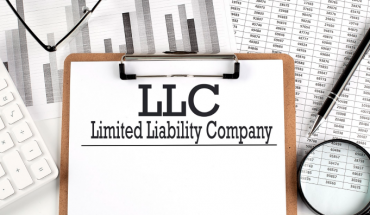Brexit: An update of the issues
By Steve Quinn, Managing Director, Artex Risk Solutions (Gibraltar) Limited
The biggest danger following the United Kingdom (UK) and Gibraltar’s departure from the European Union (EU) for any insurance company or intermediary is a loss of passporting rights. Passporting is the ability, for example, for a UK or Gibraltar insurer or intermediary to conduct business in any EU member state. If a business is licensed in the UK or Gibraltar, under current EU rules and regulations following appropriate notification to its local (Home) regulator it is deemed to be able to operate throughout the EU. This authority exists without the requirement for separate authorisation in each individual (Host) jurisdiction.
The number of insurers and intermediaries enjoying passporting rights from the UK and Gibraltar into the EU runs to thousands in total and the dangers posed by Brexit are that these privileges will be stopped unless corrective action is taken.
The difficulty that the market is faced with is the complete uncertainty caused by the political machinations in the UK and the seemingly intransigent position being adopted by the European Commission in Brussels.
As a consequence of this wholly confused position regulated entities need to be planning for the worst and then perhaps hoping for something better than this.
Hard Brexit
Transition arrangements have been talked about but these are still not set in stone. UK regulators are offering EU insurers access until the end of 2020 and possibly beyond, but this position has yet to be reciprocated by the EU. Equally it is not apparent (probably extremely unlikely) whether such transitional arrangements would still be allowed to apply if the UK experiences a “Hard” Brexit, i.e. it leaves the EU in March 2019 without a deal.
So in terms of preparing for the worst, insurers and intermediaries need to ensure that they have future-proofed their required market access before 29th March 2019. In the last year or so we have seen some EU insurers looking to set up new entities in the UK or Gibraltar for continued UK operations. The position is further confused, however, by legal uncertainty as to whether insurers will be able to continue servicing existing policies that run beyond March 2019 and indeed whether they will be able to pay claims after that date.
What actions should Brexit-challenged insurers and intermediaries be taking now?
In simple terms intermediaries and insurers need to be located in the correct jurisdiction to ensure that they are not faced with problems following a difficult Brexit.
Therefore, if you are a UK business enjoying European passporting rights you will need to be somewhere in Continental Europe post-Brexit. If you are a European business conducting UK business you will need to be in either the UK or Gibraltar in the future.
Regulators are already actively dealing with applications from businesses faced with these challenges and the clock is ticking rapidly towards potential problem time. The moment to act on these issues is now.
Will Gibraltar be a winner or a loser post-Brexit?
A very difficult question to answer given the uncertainty over the final arrangements but here are some thoughts for consideration.
In Continental Europe, Luxembourg and Dublin have already been apparent winners of significant new entities in the form of, for example, RSA, Tokio Marine, Liberty, AIG and Hiscox, who need to secure EU access in the future, whilst Lloyd’s announced some time ago its plans to set up its EU headquarters in Brussels.
Malta and Gibraltar in their own way are also seeing new opportunities that they are progressing. Both have the facility to accommodate Protected Cell Company (PCC) business and third party non-statutory opportunities may well be popular in the future in both jurisdictions.
In my view Gibraltar should not be a loser and could be a net winner of insurance business. As measured by gross premium approximately 90% of Gibraltar’s business is passported into the UK – this will continue unaffected. However, a number of Gibraltar insurers do have books of business in both the UK and Continental Europe, and they will need to make some potentially difficult decisions about how to manage the EU position in the future.
Gibraltar could be a net winner from EU entities needing to access the UK market – it could be an ideal location for such entities.
However, a greater concern may be the arrangements that are eventually agreed (or not as the case may be) about freedom of movement. The workforce of Gibraltar is largely supplemented by the thousands of people who cross the border from homes in Spain on a daily basis. It remains to be seen whether the border will be as easy to cross in the future as it has been in the recent past.





